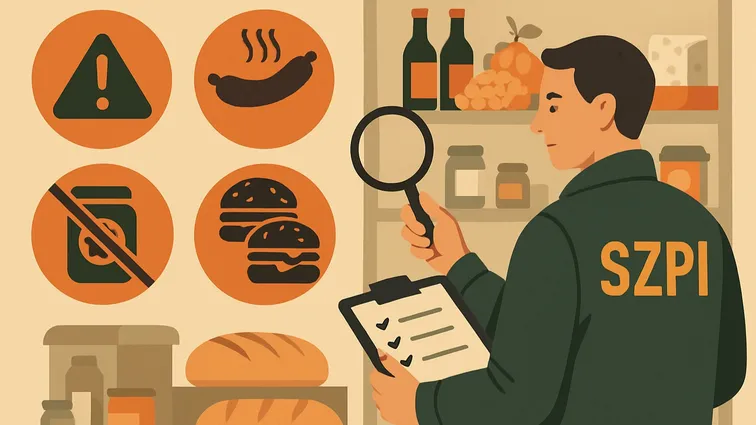The Czech Agriculture and Food Inspection Authority (Státní zemědělská a potravinářská inspekce or SZPI) conducts thousands of inspections of food businesses every year. A look back at the previous year reveals notable trends in inspectors’ decision-making – particularly a sharp increase in the total amount of fines imposed. What are the most frequent violations inspectors deal with, and what should businesses watch out for before an inspection? Read our summary of key findings from SZPI's 2024 annual report.
Most common violations: Expired food tops the list
Inspections by the Czech Agriculture and Food Inspection Authority (SZPI) in 2024 revealed more issues than in previous years, with fines increasing by nearly 50%. So what were the most frequent violations? Inspectors did not waste time and carried out a total of 50,059 inspections across food business establishments, catering facilities, customs warehouses, and online stores. The result? Issues were found more often than many would wish. In total, 3,323 non-compliant batches of food and other products were identified – meaning roughly one in every fifteen inspections uncovered an issue.
The most common violations remain consistent - expired food, failure to meet hygiene standards, and misleading information on food labels continue to be the biggest challenges for Czech entrepreneurs. Inspectors most frequently dealt with placing food past its ‘use by’ date on the market, as well as food past its ‘best before’ date that was neither labelled nor stored separately. Expired food alone accounted for over 2,000 violations. In second place were hygiene deficiencies –including non-compliance with hygiene requirements when putting food into circulation (1,530 cases) and failure to follow HACCP-based procedures (557 cases).
The third most common issue was misleading information on food labels and placing food injurious to health or unfit for human consumption on the market. Other frequent violations included breaches of the notification obligation by food business operators – in cases where businesses had not notified their activities at all.
INSPECTIONS IN NUMBERS - Fines are getting tougher
Inspectors did not hesitate to impose higher fines for more serious violations of food regulations. While the number of fines remained virtually unchanged compared to 2023,[1] the average penalty amount increased significantly. In total, fines imposed in 2024 amounted to CZK 189,056,750, representing a 47% increase compared to the previous year. Few violations went unpunished — in most cases, businesses faced financial penalties.
Although the annual report does not specify the most common fine amounts or their range from the lowest to the highest, a calculation based on available data suggests an average fine of CZK 66,618.
E-shops under the inspectors' radar
Online food sales continue to boom, offering new opportunities for entrepreneurs. However, the digital environment also brings specific challenges in complying with food law. SZPI inspectors are increasingly focusing on this area – in 2024, they conducted 864 inspections specifically targeting online food sales. Of these, 47% (!) resulted in non-compliance, meaning nearly every second inspection uncovered an issue. Common issues of e-shops included, among other things, the lack of purchaser age verification systems, especially for alcohol purchases. This shows that online sales pose specific but manageable challenges for entrepreneurs.
WHAT DOES THIS MEAN FOR YOUR BUSINESS?
The results of SZPI inspections send a clear message: prevention and proper process setup are essential when operating in the food sector. Correct product labelling and transparency toward consumers can help avoid penalties and problems with customer trust.
Not sure if your business is fully compliant? Our team specialising in food law is ready to help you prevent issues during SZPI inspections.
- [1] – SZPI’s 2023 activity report: https://www.szpi.gov.cz/clanek/zprava-o-cinnosti-szpi-za-rok-2023.aspx








